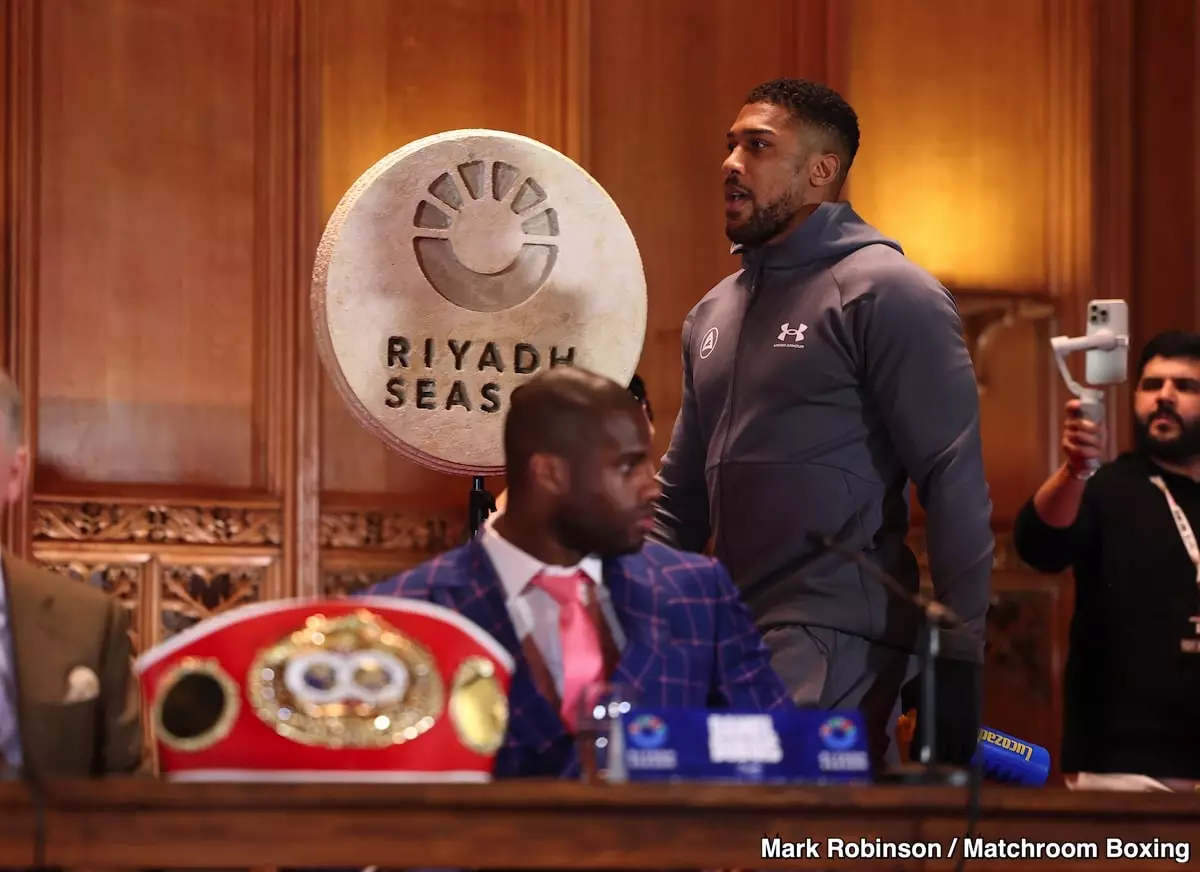Strategic Crossroads for Anthony Joshua: Future Fights and Implications
As a long-time fan of boxing, I’ve always found Anthony Joshua’s career to be a fascinating journey of highs and lows. With each fight, he crafts a narrative that keeps us all on the edge of our seats. Recently, following his knockout loss to Daniel Dubois in September, the buzz around what’s next for Joshua has reached new heights. This loss has placed him at a critical crossroads, one that could potentially redefine his legacy in the sport. Like many of you, I’m curious about how this seasoned fighter will navigate his next steps.
Joshua’s story is one of resilience and determination. Despite being a two-time heavyweight champion, he now faces the daunting task of reclaiming his standing in a fiercely competitive arena. The initial buzz of a rematch with Dubois by February was not just about redemption but also about reestablishing his foot in the heavyweight division. However, recent developments suggest that Joshua might take a step back to heal and strategize, especially with the much-anticipated Usyk-Fury bout on the horizon. It’s a tough decision but perhaps a necessary one.
In the world of boxing, bouncing back quickly from losses is often seen as a mark of true champions. Yet, Joshua’s choice to delay his return reflects a newfound maturity in his approach. With lingering injuries and a need to thoroughly assess the evolving boxing landscape, it’s clear he’s thinking beyond immediate gratification. His promoter, Eddie Hearn, has emphasized the strategic importance of waiting for the outcome of the Usyk-Fury fight scheduled for December 21st. This pause not only acknowledges Joshua’s physical state but also the intricate dynamics among heavyweight contenders.
Key Takeaways
- Anthony Joshua is at a pivotal point in his career following his recent loss.
- A strategic pause allows him to heal and reassess future opportunities.
- The outcome of upcoming heavyweight fights will influence his next moves.
The Prospects of Facing Tyson Fury
The prospect of Anthony Joshua facing Tyson Fury has been one of the most talked-about potential bouts in recent memory. It’s not just about another fight; it’s about what it represents for both boxers’ legacies. A match against Fury offers Joshua a chance to solidify his place among the greats or risk further tarnishing his record if he loses again. At 35 years old and with four losses already under his belt, Joshua must weigh these considerations carefully. His legacy is undeniably on the line with each decision he makes moving forward.
While some may argue that any additional losses could irreparably damage Joshua’s reputation, others contend that taking on top-tier opponents is an essential part of cementing one’s legacy. For Joshua, this means considering not just immediate outcomes but also how these choices will shape public perception over time. It’s a complex web of considerations that fans and analysts alike are eager to see unfold as he navigates through this critical phase in his career.
Looking Ahead: A Limited Timeline
Eddie Hearn has hinted that May or June might be when we see Joshua back in the ring. This extended break provides an opportunity for thorough re-evaluation—not just physically but mentally and strategically as well. It’s crucial because time is ticking; no fighter can afford to linger too long without risking becoming irrelevant. As age creeps up, every choice becomes more significant than ever before.
The hiatus also fuels speculation about who Joshua might face upon returning. While Hearn suggests either Fury or Dubois as potential opponents, the truth is anything can happen in boxing—it’s an unpredictable sport by nature! Fans are eager yet cautious about what lies ahead; they know any prediction remains tenuous given how quickly things change within this intense arena where careers hinge on single moments inside that squared circle.

The Heavyweight Division Landscape
The heavyweight division itself plays an influential role when considering Anthony Joshua’s future moves—each contender brings unique challenges requiring tailored strategies from those vying for supremacy within its ranks! With exciting matchups such as Usyk versus Fury looming large over everything else happening right now across global boxing circuits worldwide; there’s no denying these bouts have implications far beyond individual records alone—they shape entire eras defining what comes next too!
Fans hold their breath waiting eagerly until decisions get made regarding next steps taken by fighters like AJ himself who stand poised atop history books ready either rise further still—or fade quietly into shadows left behind others who dared challenge greatness same ways once did themselves years before…
- Take time off to recover from injuries fully.
- Watch closely how Usyk vs Fury unfolds come December.
- Reassess training methods during downtime period wisely.
- Select future opponents carefully based upon current standings within division hierarchy itself overall strategically speaking long-term success depends upon making right choices today!
Final Thoughts
As we look forward eagerly anticipating what lies ahead next chapters written throughout storied journey embarked upon by none other than Anthony Joshua himself—one thing remains abundantly clear: while past triumphs certainly deserve celebration recognition deservedly so; equally important remember every setback encountered along way serves valuable lesson shaping future endeavors undertaken thereafter accordingly if learned properly course correction needed sometimes necessary ensure continued growth evolution ultimately leading toward desired outcomes envisioned initially outset originally intended achieve eventually someday soon hopefully sooner rather later ideally speaking best case scenario scenario possible imaginable potentially achievable realistically achievable actually attainable realistically plausible feasibly plausible feasible practical achievable attainable realistically possible conceivable realistically conceivable feasibly conceivable feasibly achievable
[CONTINUE FROM HERE]


Leave a Reply